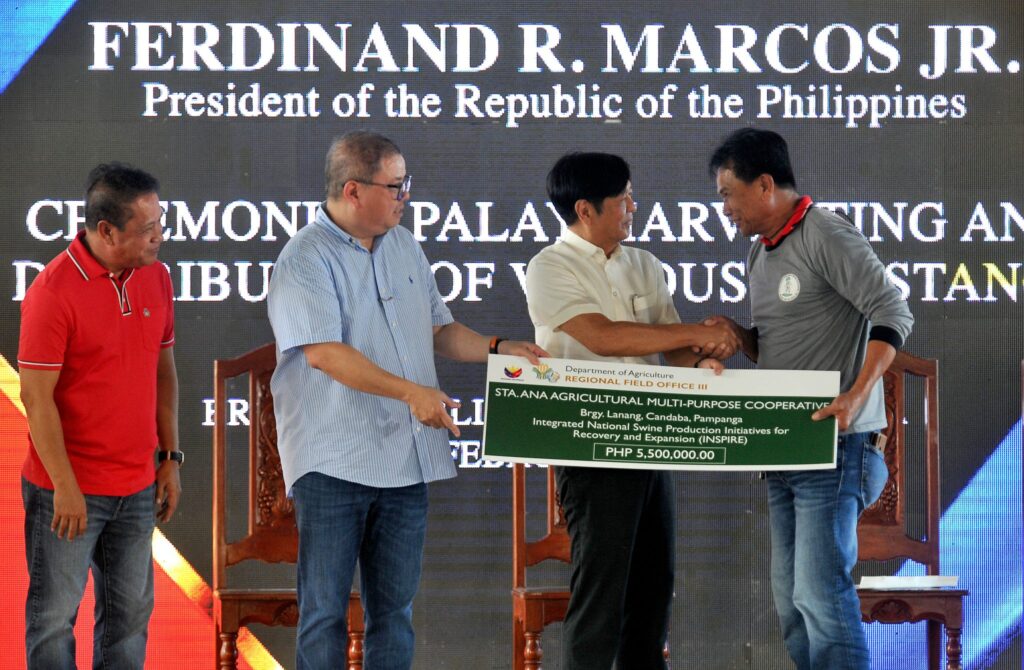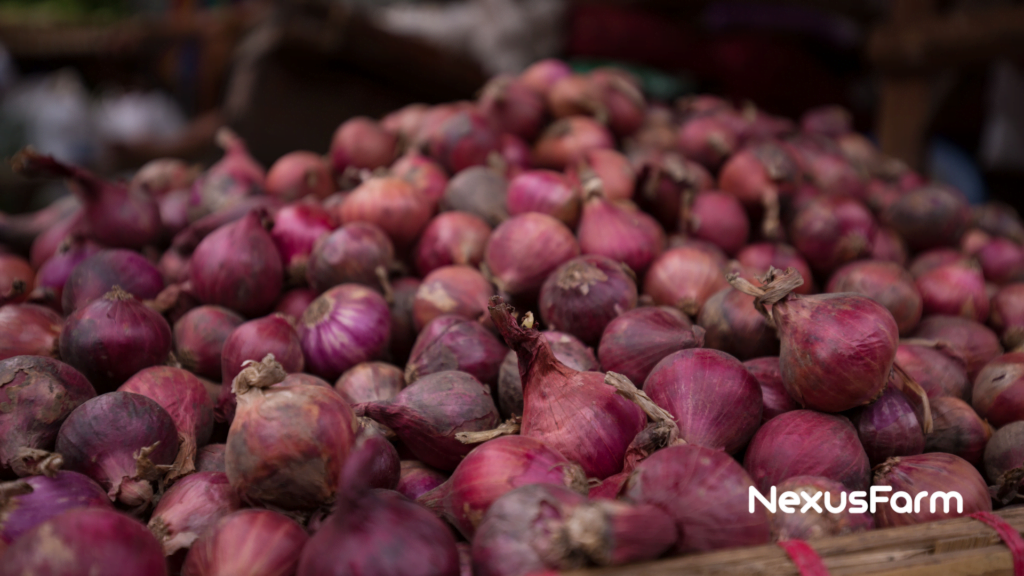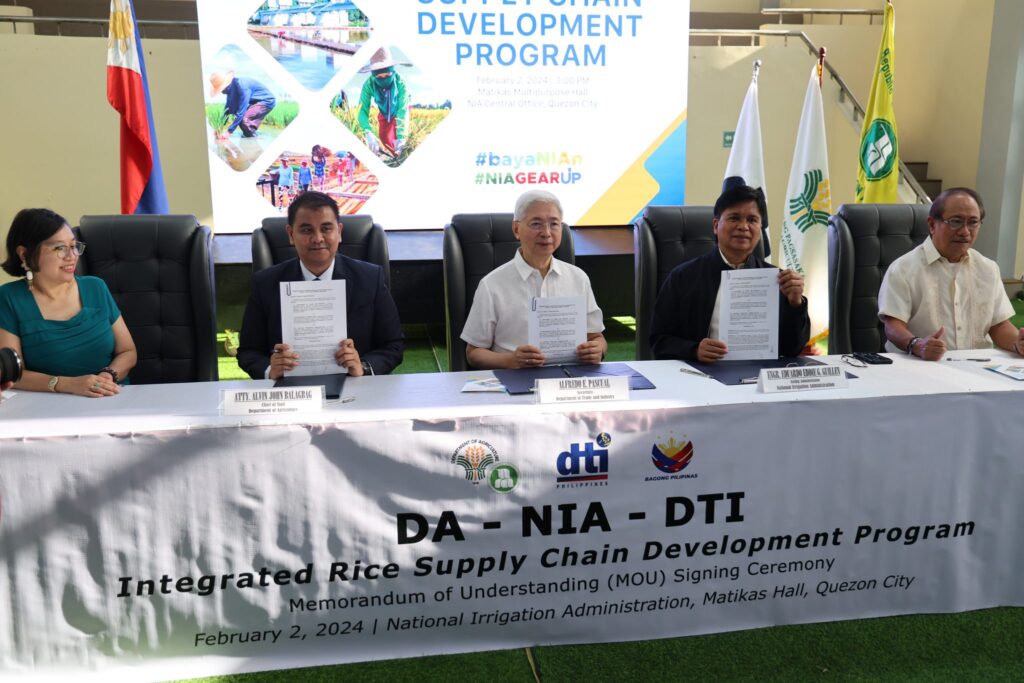
President Ferdinand Marcos Jr. and Department of Agriculture (DA) Secretary Francisco Tiu Laurel Jr. recently visited Mandili High School in Candaba, Pampanga to distribute agricultural interventions to rice farmers and farmers’ cooperatives and associations (FCAs). The event aimed to provide support to the local agricultural sector and enhance food security in the region.
A total of 12,141 rice farmers and nine FCAs in Candaba benefited from the distribution. Under the Rice Farmer Financial Assistance (RFFA) Program, 3,680 rice farmers received P5,000 each to support their farming activities. Additionally, 8,461 farmer-beneficiaries were given Fertilizer Discount Vouchers worth P63.31 million. These interventions aim to alleviate the financial burden on farmers and improve their productivity.
Furthermore, selected FCAs in Candaba received various forms of assistance, including certified inbred rice seeds, a warehouse with a mechanical dryer, interventions under the Integrated National Swine Production Initiatives for Recovery and Expansion (INSPIRE) program, and agribusiness and marketing support. These initiatives aim to enhance the overall agricultural ecosystem and promote sustainable farming practices.
The Mayor of Candaba, Rene Maglanque, expressed his gratitude to the DA and President Marcos for their support. He highlighted the importance of these interventions in enabling Candabeño farmers to support their children’s education and improve their quality of life.
Candaba, known for its vast agricultural lands, spans 20,000 hectares, with 19,000 hectares dedicated to agriculture and 10,500 families engaged in palay farming. Barangay Mandili alone has 2,000 hectares of palay areas that produce two million sacks or 91 metric tons of rice during the dry season. However, production is significantly affected during the wet season when the Candaba Swamp overflows and floods the area.
President Marcos Jr. aims to address the challenges posed by climate change to the agri-fishery sector through the implementation of solar-powered irrigation systems. By expanding the irrigable land by approximately 180,000 hectares, the President believes that agricultural production can significantly increase, leading to improved food security. He emphasized the potential of third cropping, which could yield an additional 1.2 million tons of rice.
In line with his commitment to boost local agricultural production and national food security, President Marcos Jr. outlined various strategies. These include intensifying the distribution of agricultural interventions, improving food mobilization, conducting climate risk assessments, constructing agri-infrastructures, providing additional capital and funding through government financial institutions, and conducting capacity-building initiatives through various agencies such as the DA-Philippine Center for Postharvest Development and Mechanization (PhilMech), the DA-Philippine Rice Research Institute (PhilRice), the DA-Agricultural Training Institute (ATI), and the Technical Education and Skills Development Authority (TESDA).
The DA-National Rice Program has also received an allocation of P3 billion this year to strengthen its production support, extension services, research and development, and irrigation network services. President Marcos Jr. assured the continuation of the Rice Competitiveness Enhancement Fund (RCEF) to promote agricultural mechanization among Filipino farmers and fisherfolk.
In conclusion, President Ferdinand Marcos Jr. and DA Secretary Francisco Tiu Laurel Jr. are committed to supporting the agricultural sector in Candaba, Pampanga. Through the distribution of agricultural interventions and the implementation of various programs, they aim to enhance food security, improve farming practices, and uplift the lives of Filipino farmers. Their collaborative efforts are vital steps toward building a prosperous and food-secure Philippines.
Source: www.da.gov.ph


